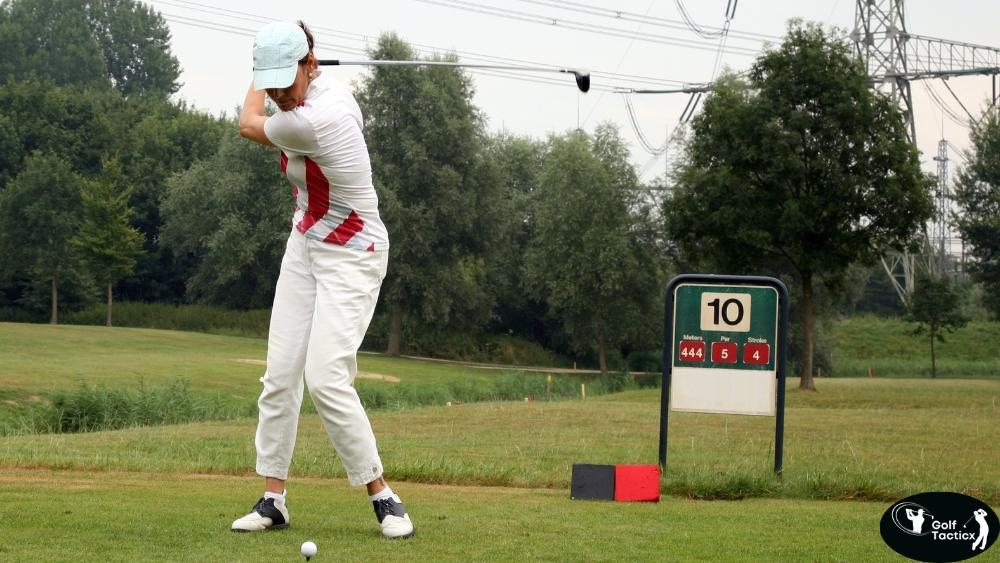In our previous posts, we’ve discussed staying focused and confident on the course, recovering mentally after a bad hole, and handling first-tee nerves. Today, we’ll delve into a crucial aspect of golf: improving your decision-making under pressure.
Making sound decisions when the stakes are high can significantly impact your performance. Improving decision-making under pressure is crucial in golf, where every shot counts. Staying calm, assessing risks, and trusting your routine can lead to better outcomes. Mastering this skill helps golfers perform confidently, even in high-stakes situations on the course.
Understanding Pressure in Golf
Pressure in golf often arises during critical moments, such as a close match, a challenging hole, or when you’re aiming for a personal best. Even seasoned professionals like Tiger Woods have faced pressure situations that tested their decision-making skills. For instance, during the 1999 Phoenix Open, Woods found himself in a challenging position behind a boulder. He made the decision to ask spectators for help to move the boulder, showcasing his ability to think outside the box under pressure.
Develop a Consistent Pre-Shot Routine
A consistent pre-shot routine can help calm your nerves and bring focus to your game. Here’s how to create one:
Visualize the Shot: Before addressing the ball, picture the shot you intend to make.
Focus on the Process: Concentrate on the steps leading up to the shot, such as your grip and stance.
Stay Positive: Use positive affirmations to build confidence.
By sticking to this routine, you can reduce anxiety and approach each shot with confidence.
Practice Under Simulated Pressure
To improve your decision-making under pressure, practice in simulated pressure situations. This could involve setting up scenarios where you need to make critical decisions, such as choosing between a risky shot and a safer option. The more you practice these situations, the better you’ll become at handling them during actual rounds.
Focus on the Process, Not the Outcome
Instead of fixating on the score or potential mistakes, concentrate on the process of your next shot. By focusing on your pre-shot routine and the steps leading up to the shot, you can shift your mind from dwelling on nerves and lock in on executing the next shot with intentionality.
Trust Your Preparation
Trusting your preparation is crucial when making decisions under pressure. If you’ve practiced a particular shot or strategy, rely on that preparation rather than second-guessing yourself. This trust can lead to more confident and decisive actions on the course.
Manage Your Emotions
Emotional control is vital when making decisions under pressure. Techniques such as deep breathing, mindfulness, and positive self-talk can help manage emotions and maintain focus. By staying calm, you can make more rational decisions and execute shots more effectively.
Learn from Experience
After each round, reflect on your decision-making, especially in high-pressure situations. Identify what worked well and areas for improvement. This reflection can help you make better decisions in future rounds.
Seek Support
Talking to fellow golfers or a coach can provide valuable perspectives and encouragement. Sharing experiences and learning from others can help you cope with pressure and improve your decision-making skills.
Play Regularly
Regular play exposes you to various situations, helping you become more comfortable making decisions under pressure. The more you play, the better you’ll understand your strengths and weaknesses, leading to improved decision-making.
Stay Present
Avoid letting your mind wander to future holes or past mistakes. Staying present allows you to focus on the task at hand and make decisions based on the current situation.
Commit to Your Decisions
Once you’ve made a decision, commit to it fully. Second-guessing can lead to hesitation and poor execution. Trust in your preparation and the decision you’ve made, and execute it with confidence.
Conclusion
Improving your decision-making under pressure is a skill that develops with practice and experience. By implementing these strategies, you can enhance your ability to make sound decisions, leading to better performance on the course.
Improving decision-making under pressure in golf means staying calm, trusting your routine, and focusing on the present shot. With practice and mental discipline, you’ll make smarter choices, reduce mistakes, and perform more consistently when it matters most.
Remember, every round is an opportunity to learn and grow. Keep practicing, stay positive, and enjoy the game.
In the next post, we will discuss how to maintain consistency throughout a round to elevate your golf game and ensure a steady performance from start to finish.
















Leave a Reply